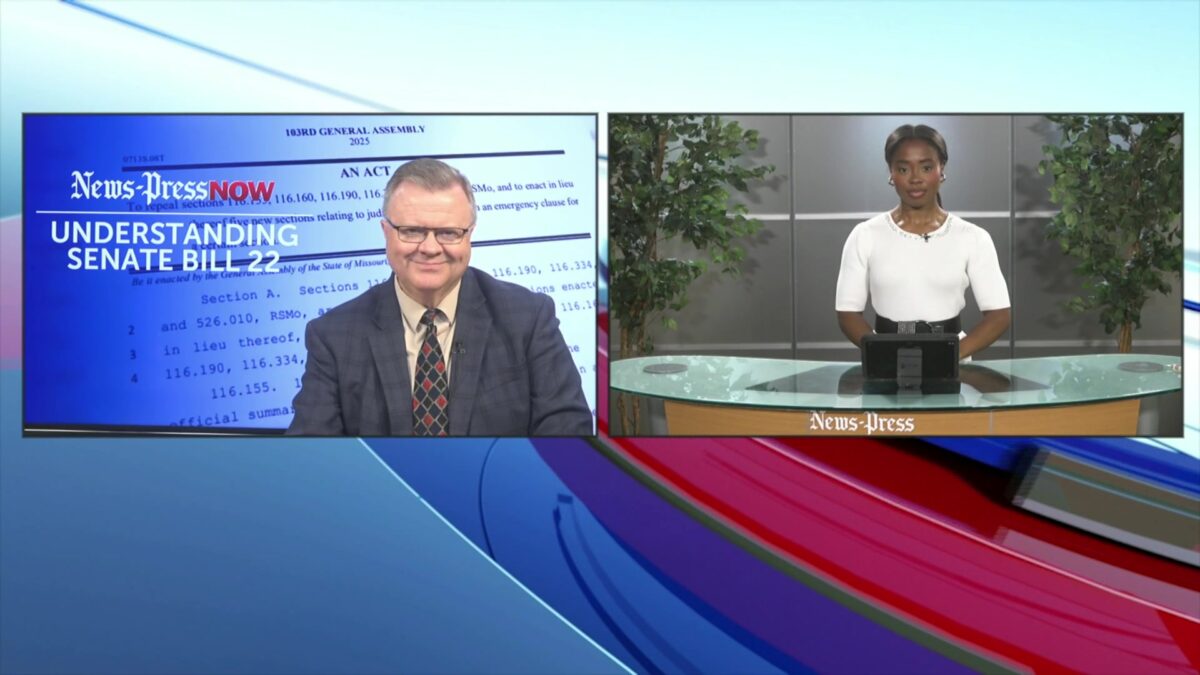For the people, by the people: Missouri’s Initiative Petition process and changes for August 2025

Kirsten Stokes
ST. JOSEPH, Mo. (News-Press NOW) — A sweeping new law set to take effect Thursday, Aug. 28, will reshape how Missourians bring issues directly to the ballot.
Citizens use the Initiative Petition process to put new laws or constitutional amendments directly on the ballot by gathering signatures.
It’s been used in Missouri for over 100 years, allowing voters to bypass the legislature and place issues directly on the ballot.
Recent examples of this include medicaid expansion, abortion access and medical marijuana legalization.
Senate Bill 22, passed by Missouri lawmakers earlier this year and signed by Governor Mike Parson, introduces a series of changes to the state’s Initiative Petition process, altering everything from who writes the official ballot language to when and how legal challenges can be filed.
Supporters of the bill acknowledge the changes will provide greater consistency and fairness. However, critics warn it could undermine democracy by making it harder for grassroots organizations to bring issues before voters.
Ballot summary responsibility
One of the most significant shifts under Senate Bill 22 is who will write the summary language appearing on ballots, a key piece of information that can shape how voters perceive an issue.
Previously, the Missouri Secretary of State was responsible for writing the short summary that appears on ballots to explain what a proposed measure does.
State Representative Dean Van Schoiack (R-Savannah), who represents part of Buchanan County, said the change is about “putting power back in the hands of the elected General Assembly, rather than relying solely on one state office to control how issues are worded for voters.”
“I think the changes made here allow for the Secretary of State to do his job correctly,” VanSchoiack said.
Under the new law, when the legislature itself refers an issue to the ballot, lawmakers will now write the summary language instead. The Secretary of State will continue to write summaries for citizen-led petitions.
Disagreers of the bill, including David Jones, the vice president for the St. Joseph National Education Association (NEA), argue that it gives more power to officials and not the will of the people.
“It’s important that when we do any initiatives that are going to go to the vote for the voters, that’s worded clearly,” Jones said.
Longer ballot summaries
In the past, anyone who disagreed with the wording of a ballot summary had 10 days after certification to challenge it. Courts also had the authority to rewrite summaries if they found the wording biased.
Now, legal challenges and court fights over how a ballot question is worded must be filed by the 22nd Tuesday before the general election. Around 154 days ahead of time.
Any court battles over ballot wording must be fully resolved at least 70 days before the election. Additionally, courts must wait for the Secretary of State to attempt up to three rewrites before stepping in.
“It doesn’t change what’s in the petition or the resolution or whatever,” VanSchoiack said. “It just gives a chance for the ballot language to change.”
But critics, including several voter advocacy groups, express that these new hurdles will make it harder for ordinary citizens to hold the government accountable, especially if ballot summaries are drafted in a way that favors one side.
“It would be harder for organizations to challenge ballot initiatives that are worded improperly,” Jones said.
Summary statement length requirement
Senate Bill 22 also doubles the maximum length of ballot summaries from 50 to 100 words, allowing for more detailed descriptions.
Supporters of Senate Bill 22 note, this gives voters more context, while opponents fear it could open the door to slanted or overly complex language.
Impact on voter-driven campaigns
For organizations that rely on Missouri’s Initiative Petition process, one of the state’s few direct democracy tools, Senate Bill 22 creates both new challenges and limited benefits.
The stricter legal deadlines mean, groups must be ready to launch costly legal fights earlier in the process.
However, the new law also clarifies that signature gathering can continue even if ballot language is being challenged in court, offering some procedural certainty.
A continuing battle over direct democracy
The passage of Senate Bill 22 reflects a broader political struggle over who controls the Initiative Petition process in Missouri—a right enshrined in the state’s constitution since 1907.
In recent years, voters have used the process to enact Medicaid expansion, ethics reforms and marijuana legalization, sometimes against the wishes of state lawmakers.
What’s next?
With Senate Bill 22 set to take effect in about a month, election officials, advocacy groups and voters across Missouri are preparing for the new system ahead of the 2026 election cycle.
Residents of St. Joseph interested in bringing an issue to the statewide ballot, or in understanding ballot measures they may vote on, are encouraged to stay informed about the new rules and deadlines.
In practical terms, voters may notice:
Longer summaries on the ballot.
Fewer last-minute legal disputes over ballot language close to election day.
The need for earlier legal action if concerns arise over how a ballot measure is worded.
For more information on how Missouri’s Initiative Petition process works, visit sos.mo.gov or contact local election offices in Buchanan County at (816) 271-1414.